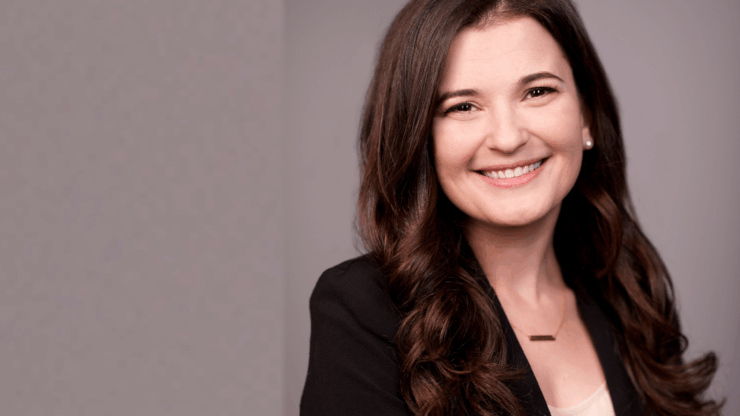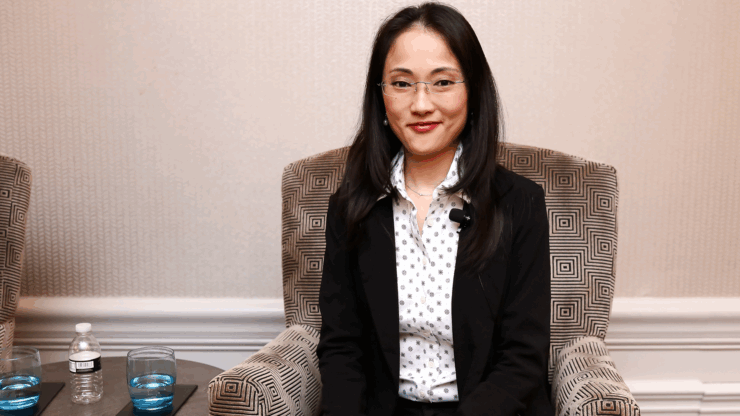Caring for a Loved One
Last Updated March 2, 2025 15 Min WatchThis educational and informative video features Dr. Howard Fillit, a renowned geriatrician, neuroscientist, and co-founder of the Alzheimer’s Drug Discovery Foundation (ADDF). As a LifeWorx Board of Advisors member, Dr. Fillit shares his expertise on caring for aging loved ones, particularly those with dementia or complex medical needs.
Dr. Fillit highlights the unique challenges faced by older adults, such as the risks of falls, the impact of polypharmacy, and the stress of caregiving on families. He emphasizes the importance of proactive care, including geriatric assessments, tailored home care plans, and preventive measures like exercise, nutrition, and home modifications. Drawing from his extensive career in geriatric medicine and his leadership at ADDF, he underscores how expert caregiving can significantly improve quality of life, maintain independence, and reduce complications for older adults.
Dr. Fillit also shares his personal connection to LifeWorx, noting the agency’s commitment to providing personalized, high-quality care. Through his insights, this video serves as a vital resource for families navigating the complexities of elder care and highlights the profound impact of compassionate, expert support.
Transcript
My name is Howard Fillit.
I’m a geriatrician.
For a long time, I edited the leading international textbook of geriatric medicine.
I differ in my practice in the same way a pediatrician is a specialist in children. Elderly people—80 years old, 85 years old—they have special needs. There is special knowledge about them. And basically, I like older people, and I like taking care of them.
About 30% of people over the age of 65 fall at least once during the year.
And when you get up to age 80, it’s about half of all people.
And so this is a really prevalent and serious problem because when an older person falls, they’re at risk for a hip fracture or subdural hematoma, which is a bleed in the brain, or traumatic brain injury.
This is a really serious problem because elderly people have a more difficult time getting rehabilitated.
They’re also terrified.
There’s a syndrome called “Fear of Falling.”
So after an older person falls once, they’re afraid of falling, so they’re afraid of walking and they tend to adopt a more sedentary lifestyle because of their “Fear of Falling.”
They become more likely to be bedridden with all the complications of this vicious spiral downward.
And the mortality rates after a hip fracture are quite high for, say, 80-year-olds.
About 27% who fall and break their hip are dead within one year.
And that’s a worse prognosis than if a woman got breast cancer in the early stages, so this is a very serious syndrome.
The multiplicity of diseases that older people get exponentially increases the complications.
Falls are a leading cause of emergency room visits in the elderly.
Many, many people who fall and go to the emergency room have to be admitted to the hospital.
Hospital is a really bad place for older people to be because they tend to get delirium because they’re confused, because they’re in an unknown place.
They also are susceptible to infections.
People sometimes, when they don’t know where they are, try to get out of bed by themselves to go to the bathroom, particularly if they’re incontinent.
They can fall in the hospital and have further complications.
And then after a person gets the hip surgery, let’s say, their discharge plan is not always to home.
Very often, it’s to some kind of long-term care or rehabilitative care.
And quality of life is markedly decreased after a fall and especially after a hip fracture.
Now, not all hip fractures are like that.
I don’t want to paint a completely bleak picture.
A lot of elderly people, particularly if they’re exercising, for example, and they’re already living a healthy lifestyle, people can recover.
So I’m not saying that without proper post-hip fracture care, people can’t recover.
They can, but they need especially rehabilitation and proper risk factor management.
Prevention is always part of the treatment of any condition, particularly these geriatric syndromes.
So, for example, when I do a geriatric assessment, I always ask the family and the patient, have you fallen within the last six months or a year?
Always. It’s just part of my screening questionnaire.
And if I determine that it might be due to a medical problem, I’ll try to treat that.
And if I think it’s an environmental problem, like something in the home, I’ll have a home care assessment sent in from a nursing or home care agency.
You know, like LifeWorx.
Most older people who fall don’t tell their doctor about it, and so they end up not doing anything about it.
And there’s a lot that can be done about falls that can prevent falls.
There’s been research, and the evidence is that it looks like falls can be prevented.
You know, simple things like exercise to strengthen the legs, tai chi to improve balance—they can prevent falls because people have a better sense of balance.
Older people get sarcopenia; they’re going to get weak.
So using exercise, including strength training and balance training, can be very important in preventing falls.
A nutritional assessment, making sure people aren’t malnourished so that their body is in a healthy condition and not getting more sarcopenia, losing muscle mass from lack of protein, lack of diet, and so on.
A home care assessment, going in the home and clearing the path between the bed and the toilet because a lot of falls happen when an older person is getting out of bed in the middle of the night.
They slip on the floor, they break their hip on the way to the bathroom, and they might lay there for hours before they finally get out of there.
So I think doing all these assessments, making sure there’s no furniture in the living room or rugs in the living room that can be tripped on because they’re flipped a little bit, the edge is not smooth with the floor, getting rid of smooth floors, making some sort of stick floor environment or getting shoes that have more traction so people have less falls.
A medication assessment is really important.
So many medications can have increased risk of falls.
Antidepressants, for example, increase the risk of falls.
There’s many drugs that can drop blood pressure, and many older people are on two or three of these drugs at one time, and they can fall and break their hip or hit their head.
Many older people have arthritis in their feet, and that can lead to a gait disorder.
This is easy to assess. Just look at gait speed.
How long does it take a person to walk ten meters, like thirty feet, or even just six feet, and look at their gait.
Because with aging, the gait changes and puts people more at risk for falling.
Things like Parkinson’s disease alter a person’s gait.
So there are diseases that can be assessed to see where a person is.
And if they have bad feet, they need to see a podiatrist and get proper shoes.
If they have an abnormal gait for whatever reason, maybe they need assistive devices like a cane or a walker. Or maybe it’s the caregiver who needs to assist the person whenever they’re walking to prevent a fall.
A couple of other parts of the home care assessment should be an assessment of the lighting in the home, removing electric cords out of the way, putting tape on steps so people can see the steps more easily, and adding grab devices in the shower and other places where people can hold on.
So, I think a critical part of the geriatric assessment is evaluating the situation in the home and determining the best long-term care plan to ensure the maintenance of function and quality of life.
Drugs account for a lot of problems in the elderly. Falling, for example, is one issue because a lot of drugs drop blood pressure or impair the ability to sense balance.
Polypharmacy is a geriatric syndrome in which patients are on four or more drugs at one time, and all these drugs have side effects.
In addition, they have multiple drug interactions.
Part of a geriatric medicine assessment is looking at all the medications and supplements.
Sometimes I have patients come into my office, and I tell them to bring everything from their medicine cabinet in a bag.
They put all their medicines on the table, and sometimes they have 30 different things they’re taking, many of which have no evidence of being effective.
They often get these as supplements or over-the-counter products.
I go through everything and throw a lot of it out.
In fact, the more I take people off unnecessary medicine, the better they feel.
There are aspects of care that make it difficult for spouses who don’t understand the dementing process and stages to care for their loved one.
For example, agitation is common in people with dementia.
The best way to manage agitation is often redirection.
When patients and spouses come into my office and say their loved one is agitated, I don’t want to immediately prescribe psychotropics or antipsychotics, which can have serious side effects and aren’t recommended.
Instead, I train the spouse to change the subject, take their loved one out for a walk, or remove them from the situation that’s causing distress.
It’s important to understand the triggers for agitation.
Simple training like this can help redirect patients to a more comfortable and manageable place.
When I do a geriatric assessment, I also look at the social aspects of a person’s life.
I ask who they live with and if that person is capable of providing home care.
For example, if a couple is in their 80s and one spouse is trying to care for the other, it’s often too much to manage 24/7—especially if the person being cared for has dementia.
At age 85, about 40–50% of people have some form of cognitive impairment or dementia.
It’s an impossible task to ask an 80-year-old spouse to provide that level of care alone without help or training.
This is where home care agencies like LifeWorx come in.
Agencies that have extensive experience with elderly patients, especially those with dementia or multiple chronic conditions, are essential.
The caregivers’ experience and expertise make a huge difference in ensuring quality care.
When I refer patients to LifeWorx, it’s often after families have tried for years to manage the situation themselves.
This can lead to stress, anxiety, and depression for caregivers and bad outcomes for the patient.
Getting someone into the home as soon as possible is critically important.
Some people do better staying at home if they have supportive family members, ways to socialize in their community, and a manageable level of frailty.
Most people would prefer to stay at home, and our job is to fulfill their wishes.
However, for individuals who are very frail—physically or cognitively—or who require more intensive care, an institutional setting may be better suited to their needs.
It depends on their care needs, functional ability, and home situation.
I joined the LifeWorx Board after meeting Bal and becoming aware of the agency.
I started referring my patients to LifeWorx and saw firsthand that they were receiving excellent care.
The agency was responsive, and the care was highly personalized.
As a geriatrician, I can’t do everything myself—I need a multidisciplinary team.
LifeWorx excels because of its experienced caregivers and its commitment to quality care.
The core of great care lies in the people providing it, and LifeWorx has really been excellent.

















